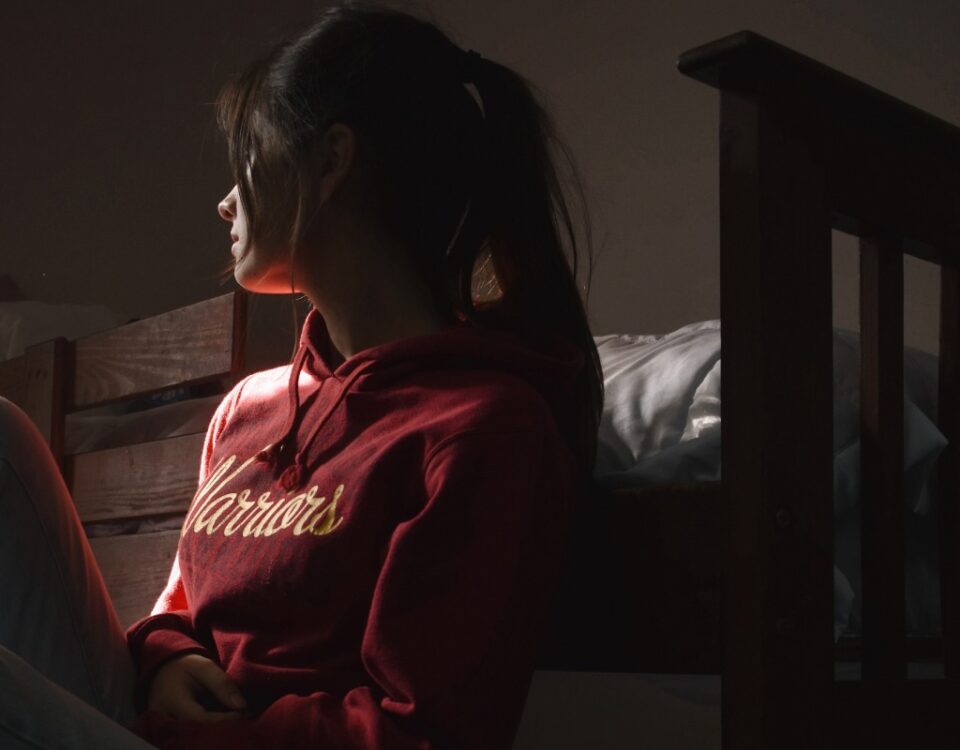
Identifying the Signs That You May Be in a Co-Dependent Relationship
April 16, 2023
Overcoming the Fear of Approaching a Loved One Struggling With Addiction
April 24, 2023Experiencing a panic attack or an anxiety attack is an incredibly upsetting and disconcerting experience. But many people may wonder, is there a difference between the two, or are they just two terms for the same thing? The truth is that these are actually two different experiences. While they can be easily misidentified, there are ways to tell them apart.
One of the most significant differences between anxiety attacks and panic attacks is what brought the incident on. Panic attacks can occur with no trigger at all, while anxiety attacks often stem from some sort of perceived threat. Being able to better differentiate between the two and identify the symptoms of both can help you to better understand your mental health. It can also impact what sort of steps you may want to take in order to find relief.
Signs of an Anxiety Attack
Everyone’s experience with anxiety attacks is a bit different. However, there are some common signs to look out for. Typically an anxiety attack will occur after you’ve been worrying about something or anxious for an extended period of time. This could be minutes or even hours experiencing your anxiety symptoms getting worse and worse until reaching a sort of peak where your anxiety may feel out of control.
Some common symptoms of anxiety attack include:
- Shaking hands
- Excessive sweating
- Intense nervousness
- Irritability
- Inability to relax
- Trouble concentrating
- Increased heart rate
- Heavy breathing
- A sense of something bad about to happen
The feelings of anxiety can persist over time, even after the anxiety attack has occurred.
Signs of a Panic Attack
While it’s different for everyone, panic attacks are often more severe than anxiety attacks. They can appear as if from out of nowhere. You might not even be able to point to a specific trigger that caused it or explain why you are feeling this way.
Some common symptoms you may be experiencing include:
- A rapid heart rate
- Chest pain
- Stomach pain
- A sense of having no control
- Numbness in extremities
- Sudden fear of dying
- Shaking
- Nausea
- Shortness of breath
- Dizzyness
There is no set time frame in which you can expect a panic attack to begin and end. However, it is common for them to last between five and 20 minutes. They can persist for an hour or even longer.
What Causes Anxiety and Panic Attacks to Happen?
There are many factors that can play into what is causing you to experience anxiety or panic attacks. For some people, anxiety may run in their family, or they may have a chronic condition that is contributing to it. Others may struggle with these issues due to side effects from medications or because they are experiencing withdrawal symptoms from a particular substance. Some people struggle with anxiety or panic attacks as a result of certain phobias they may struggle with that they can’t control.
There are factors within your life that could be causing you to experience these attacks. It could be due to past trauma or simply ongoing stress that has continued to build up over time. Some of the factors that often play into these attacks include:
- Financial concerns
- Aging parents
- Having a family member go through an illness
- Relationship problems or going through a divorce
- Unemployment
- A toxic workplace environment
- Legal trouble
- Feeling out of control in one’s own life
What You Can Do to Experience Relief
Some people experience anxiety or panic attacks every once in a while during times when they are feeling incredibly stressed. However, for others, it can be a regular occurrence. This can be very difficult to deal with, taking a major toll on your mental health. It can also lead to other problems like depression, and some people may turn to substance misuse to cope with the feelings.
One of the worst things that these attacks can do is rob you of your joy and decrease the quality of your life. If you feel as if your anxiety is affecting your happiness and ability to function in your day-to-day life, it may be time for a change. Regardless of how long you’ve been struggling, help is available. There are also things you can do to start managing your anxiety more effectively.
Start by reaching out to your primary care provider. They may recommend therapy or want to prescribe medication to help alleviate your symptoms. There are also things you can do on your own on a daily basis. Make sure to prioritize your physical health by eating nutritious foods, staying hydrated, getting enough sleep, and exercising. The better you care for your physical health, the better your mental health will be.
You may also consider practicing yoga, journaling, doing meditation, listening to calming music, or spending quality time with friends. All of these things can have a positive effect as you work to manage your mental health.
Many people struggle with some form of anxiety. If you struggle with either anxiety or panic attacks, you understand just how upsetting it can be. You may find yourself worrying about when it’s going to happen next and what you’re going to do to handle it. This may cause you to want to turn to substance use to cope. However, this can just lead to further problems. If you are struggling with mental health or addiction, our team at The Kimberly Center is here to help you. We’ve helped many people get sober and want to help you too. Call our team at (855) 452-3683 today to learn more about our services.




